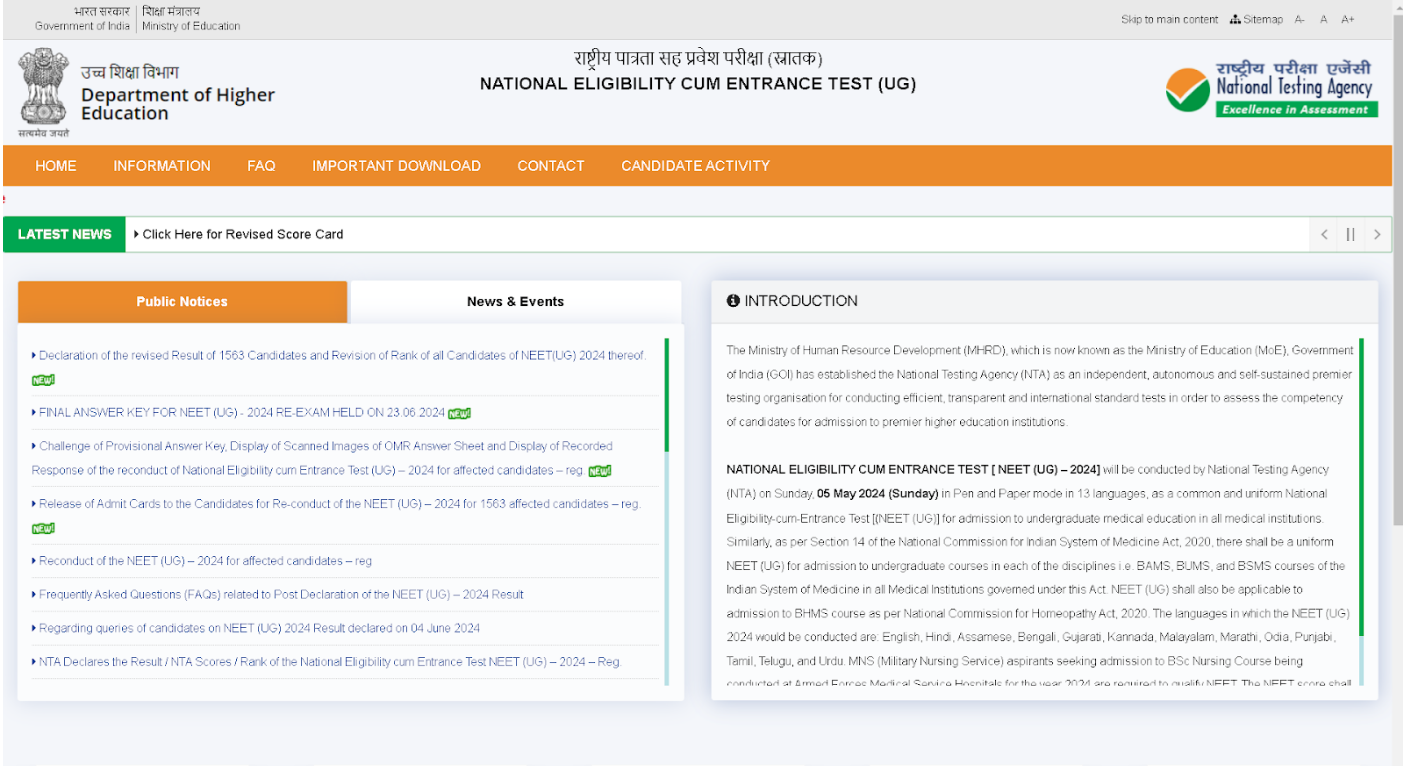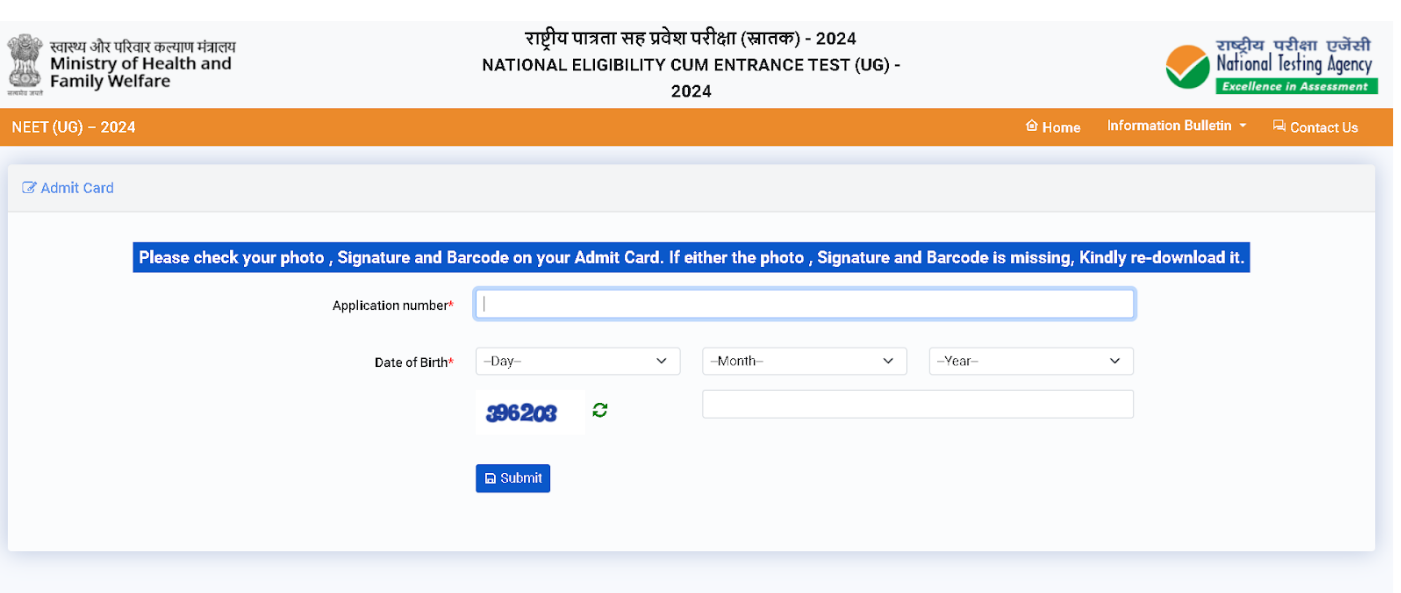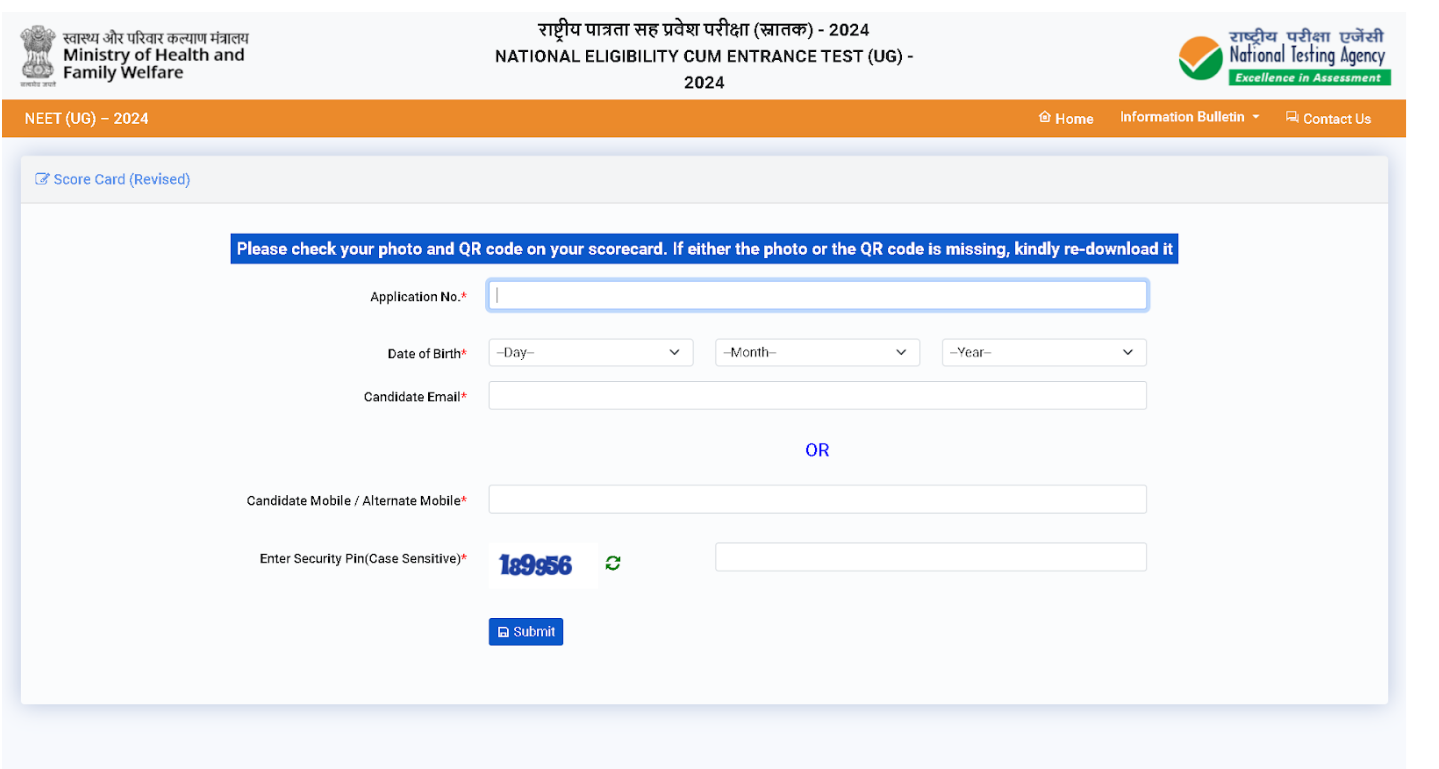- Overview
- Syllabus
- Exam Pattern
- Results
- Exam Dates
- Preparation Tips
- FAQs
- Analysis

The National Eligibility cum Entrance Test (NEET) is a national-level medical entrance examination in India. It is the gateway for admission to undergraduate medical (MBBS), dental (BDS), and AYUSH (BAMS, BHMS, etc.) courses in various government and private institutions across the country. The exam is conducted by the National Testing Agency (NTA).
The NEET 2024 syllabus is based on the NCERT curriculum for classes 11 and 12, covering Physics, Chemistry, and Biology. Here is a brief overview:
1. Physics:
Class 11: Physical world and measurement, Kinematics, Laws of Motion, Work, Energy and Power, Motion of System of Particles and Rigid Body, Gravitation, Properties of Bulk Matter, Thermodynamics, Behavior of Perfect Gas and Kinetic Theory, Oscillations and Waves.
Class 12: Electrostatics, Current Electricity, Magnetic Effects of Current and Magnetism, Electromagnetic Induction and Alternating Currents, Electromagnetic Waves, Optics, Dual Nature of Matter and Radiation, Atoms and Nuclei, Electronic Devices.
2. Chemistry:
Class 11: Some Basic Concepts of Chemistry, Structure of Atom, Classification of Elements and Periodicity in Properties, Chemical Bonding and Molecular Structure, States of Matter: Gases and Liquids, Thermodynamics, Equilibrium, Redox Reactions, Hydrogen, s-Block Element (Alkali and Alkaline earth metals), Some p-Block Elements, Organic Chemistry - Some Basic Principles and Techniques, Hydrocarbons, Environmental Chemistry.
Class 12: Solid State, Solutions, Electrochemistry, Chemical Kinetics, Surface Chemistry, General Principles and Processes of Isolation of Elements, p-Block Elements, d and f Block Elements, Coordination Compounds, Haloalkanes and Haloarenes, Alcohols, Phenols and Ethers, Aldehydes, Ketones and Carboxylic Acids, Organic Compounds Containing Nitrogen, Biomolecules, Polymers, Chemistry in Everyday Life.
3. Biology:
Class 11: Diversity in Living World, Structural Organisation in Animals and Plants, Cell Structure and Function, Plant Physiology, Human Physiology.
Class 12: Reproduction, Genetics and Evolution, Biology and Human Welfare, Biotechnology and Its Applications, Ecology and Environment.
| Section | Number of Questions | Marks per Question | Total Marks | Subjects Covered |
| Physics | 50 | 4 | 180 | Physics |
| Chemistry | 50 | 4 | 180 | Chemistry |
| Biology | 100 | 4 | 360 | Botany, Zoology |
| Criteria | Details |
| Total Questions | 200 (180 to be attempted) |
| Total Marks | 720 |
| Marks per Question | 4 |
| Correct Answer | +4 marks |
| Incorrect Answer | -1 mark |
| Unanswered Question | 0 marks (no penalty) |
Section wise distribution
| Section | Number of Questions | Total Marks |
| Physics | 50 (45 to be attempted) | 180 |
| Chemistry | 50 (45 to be attempted) | 180 |
| Biology | 100 (90 to be attempted) | 360 |
Additional Details
| Negative Marking | Yes (1 mark deducted for each wrong answer). |
| Question Type | Multiple Choice Questions (MCQs). |
| Total Duration | 3 hours 20 minutes. |
Additional Details
Conducted by: National Testing Agency (NTA)
Official Website: www.nta.ac.in
Application Process
| Application Form Link | https://exams.nta.ac.in/NEET/ |
| Application Form Cost | General: ₹1600 General-EWS/OBC-NCL: ₹1500 SC/ST/PwD/Transgender: ₹900 |
Important Details
Eligibility: Candidates must have completed or be appearing in the 12th standard with Physics, Chemistry, Biology/Biotechnology, and English as subjects.
Admit Card Release: Usually, a few weeks before the exam date.
NEET is highly competitive, and preparation requires a strong understanding of the syllabus, effective time management, and consistent practice with mock tests and previous years’ papers. The score obtained in NEET is valid for admissions in the current academic year only.
Steps to Download NEET Admit Card

Step 1: Visit the Official NEET Website:
Open your web browser and go to the official NEET NTA website: https://ntaneet.nic.in.
Step 2: Find the Admit Card Link:
On the homepage, look for the link that says “Download Admit Card” or “NEET Admit Card.” This link is usually available in the “Current Events” or “Latest News” section.
Step 3: Click on the Admit Card Link:
Click on the link to proceed to the admit card download page.
Step 4: Enter Required Details:
On the login page, you will need to enter your application number, date of birth, and security pin (captcha) displayed on the screen.
Step 5: Submit Information:
After entering the required details, click on the “Submit” button to access your admit card.
Step 6: View and Download Your Admit Card:
Your NEET admit card will appear on the screen. Carefully check all the details on it, such as your name, roll number, exam center, and exam date.
Click on the “Download” button to save the admit card to your device.
Take a printout of the admit card. It is mandatory to carry a printed copy of the admit card to the examination center.
Important Points to Remember
Check for Corrections: Verify all the details on your admit card. If there are any discrepancies, contact the NTA immediately.
Carry Necessary Documents: Along with the admit card, you will need to carry a valid photo ID proof to the exam center.
Keep Multiple Copies: Print multiple copies of the admit card to avoid any last-minute issues.
By following these steps, you can easily download your NEET admit card from the official website.
Steps to View NEET Result

Step 1: Visit the Official NEET Website:
Open your web browser and go to the official NEET NTA website: https://ntaneet.nic.in.
Step 2: Locate the Result Link:
On the homepage, look for the link that says “NEET Result” or “NEET UG Result.” This link is typically available under the “Latest News” or “Current Events” section.
Step 3: Click on the Result Link:
Click on the NEET Result link to proceed to the result login page.
Step 4: Enter Required Details:
On the login page, you will need to enter your roll number, date of birth, and the security pin (captcha) displayed on the screen.
Submit Information:
After entering the required details, click on the “Submit” button to view your result.
Step 5: View and Download Your Result:
Your NEET result will appear on the screen. You will see your subject-wise scores, total score, All India Rank (AIR), and category rank.
Download the result and take a printout for future reference.
Important Points to Remember
Keep Your Credentials Ready: Ensure you have your NEET roll number and other relevant details ready before you start the process.
Check Email and SMS: Sometimes, NTA may send result notifications to your registered email address or mobile number.
Official Website Only: Always use the official NEET website to check your results to avoid any misinformation.
By following these steps, you can easily access your NEET result online.
Last Year (2023):
Exam Date: May 7, 2023
Result Date: June 13, 2023
Current Year (2023):
Exam Date: May 5 2024
Result Date: June 2024
Preparing for NEET requires a strategic approach, thorough understanding of the syllabus, effective time management, and consistent practice. Here are some tips to help you excel in NEET 2024:
Books for Preparation:
Physics:
Chemistry:
Biology:
Additional Resources
Previous Years' Question Papers: Essential for understanding the exam pattern and practicing time management.
Mock Tests: Regular practice with mock tests helps in building speed and accuracy.
Online Test Series: Enroll in online test series for additional practice and performance analysis.
By utilizing these resources effectively, students can strengthen their preparation and increase their chances of success in NEET 2024.
Time Management Techniques:
Create a Timetable: Allocate specific times for each subject and stick to it.
Prioritize Topics: Focus on high-weightage topics.
Regular Breaks: Take short breaks to avoid burnout.
Exam Writing Techniques:
Read Questions Carefully: Ensure you understand what is being asked.
Time Allocation:Assign specific time slots for each section.
Review: Leave time to review your answers.
Mock Tests:
Regularly practice with mock tests to familiarize yourself with the exam pattern and improve time management skills.
Analyze your performance in each mock test and work on weak areas.
By following these strategies, students can enhance their preparation and improve their chances of performing well in NEET 2024.
1. Extensive Practice
Previous Year's Question Papers: NEET toppers extensively solved previous years' question papers. This practice helped them understand the exam pattern, question types, and difficulty levels.
Mock Tests: Regularly taking NEET mock tests was a crucial part of their preparation. These tests helped them simulate the exam environment, manage time effectively, and identify areas that needed improvement.
2. Focus on Problem-Solving
Active Learning: Toppers emphasized active learning through problem-solving rather than passive reading. This approach helped in better retention and understanding of concepts.
Application of Concepts: They focused on applying theoretical knowledge to practical problems, which enhanced their analytical skills and recall power.
3. Strategic Study Routine
Time Management: Successful candidates managed their study time efficiently. They devoted 60-70% of their preparation time to practicing questions and taking mock tests.
Regular Revision: Continuous revision of important topics ensured that they retained key concepts and formulas.
4. Consistent and Disciplined Approach
Daily Schedule: Maintaining a disciplined daily schedule was vital. Toppers followed a structured timetable that balanced study time, practice sessions, and breaks.
Goal Setting: Setting short-term and long-term goals helped them stay focused and motivated throughout their preparation journey.
5. Stress Management
Balanced Lifestyle: A balanced lifestyle with adequate sleep, regular exercise, and healthy eating habits contributed to their overall well-being and focus.
Mental Health: Managing stress through activities like meditation, hobbies, and spending time with family and friends helped them maintain a positive mindset.
6. Resource Utilization
Quality Study Material: Using the right study materials, such as NCERT textbooks and recommended reference books, was essential.
Coaching and Guidance: Many toppers sought guidance from teachers, mentors, and coaching institutes to clarify doubts and receive structured training.
By adopting these strategies and maintaining a disciplined and focused approach, NEET aspirants can enhance their chances of success in the exam. The journey of NEET achievers highlights the importance of consistent practice, strategic planning, and a positive mindset.
Importance of the NEET Exam for Medical Students
A significant examination for the Indian students pursuing their medical career is the National Eligibility cum Entrance Test (NEET). Here are several reasons why it is crucial.
1. Standardized Assessment
NEET thus helps in offering a shared test for all the medical learners from different parts of the country. This ensures that there is a set standard of measuring the students’ performance in Physics, Chemistry and Biology. The fact that it is a standardized exam aids in ensuring fairness when admitting students into the university.
2. Merit-Based Admissions
NEET also enables merit –based admissions implying that candidate shall undergo a single examination to be admitted to any university. This assists in identifying and admittance the right candidates to the right medical courses and not influence the system with other factors apart from merit as in other methods may do.
3. Nationwide Recognition
It is accepted by all the medical colleges in India whether it is Govt. colleges or private colleges or deemed university colleges. This implies that the availability of a competent NEET score allows the learners access many institutions, thus offering them several options to attend medical school.
4.Simplified Admission Process
Earlier to the NEET, students had to sit for a number of entrance tests that being held by different states and institutions, creating chaotic situations among the students. Thus, with NEET there is no requirement for so many different examinations and the students do not have so much burden and it becomes easy to clear the admissions.
5. Quality Assurance
Hence, NEET plays the significant role in limiting the access to medical courses to only those students who are well-prepared and have and adequate knowledge to cope with related challenges. This goes a long way in improving the quality of medical education and the preparedness of these future Health Care workers in India.
6. Inclusivity
NEET is an unbiased exam and all the students irrespective of the boards they have appeared in the previous years or the background they come from are given equal chances. This assists in developing a qualified and diverse generation of doctors to meet the health demands of the population.
7. Regulation and Transparency
Conducted by the National Testing Agency (NTA), NEET is regulated to ensure transparency and integrity in the examination process. This minimizes the chances of malpractices and ensures a fair evaluation of all candidates.
8. Foundation for Future Careers
A good NEET score is not only essential for gaining admission to MBBS and BDS courses but also serves as a foundation for various postgraduate courses and specializations in the medical field. This makes NEET a critical step in the long-term career path of a medical professional.
NEET is crucial for medical students as it provides a fair, standardized, and transparent method for selecting the best candidates for medical education. It simplifies the admission process, ensures quality and meritocracy, and lays the groundwork for successful medical careers.
How many times can I appear in the NEET exam?
As of now, there is no limit on the number of times a candidate can appear for the NEET exam. Candidates can attempt NEET as many times as they wish, provided they meet the eligibility criteria regarding age, educational qualifications, and other requirements specified by the National Testing Agency (NTA).
Key Eligibility Criteria:
Age Limit:
Minimum Age: Candidates must be at least 17 years old as of December 31st of the year of admission.
Maximum Age: There is no upper age limit for NEET as per the latest updates, although this is subject to changes and candidates should refer to the latest information provided by NTA.
Educational Qualification:
Candidates must have completed or be appearing in their 10+2 examination or equivalent with Physics, Chemistry, Biology/Biotechnology, and English as core subjects from a recognized board.
General category candidates must secure a minimum of 50% marks in PCB, while SC/ST/OBC candidates need 40%, and PwD candidates need 45%.
Candidates are advised to regularly check the official NEET website or the information bulletin released by the NTA for any updates or changes in the eligibility criteria or other related guidelines.
Validity of NEET Results
The NEET result for the year 2024 has a validity of one year. This means that the NEET scorecard for 2024 will be valid for admission to medical and dental courses only for the academic session 2024-2025. If a candidate does not secure admission during this academic period, they will need to reappear for the NEET exam in the following year.
Life Lessons & Strategies from NEET Achievers
Understanding the success strategies of NEET toppers can provide valuable insights and inspiration for aspirants. Here are some common points and practices that emerged from interactions with various NEET achievers:
Physics: Moderate to difficult. Questions were conceptually challenging and required a strong understanding of fundamentals.
Chemistry: Moderate. A mix of direct and application-based questions.
Biology: Moderate. Mostly NCERT-based but lengthy.
Timings: The exam duration was 3 hours 20 minutes, with many students finding it adequate to complete the paper.
However, some found managing time for lengthy Biology questions challenging.
Overall: The paper was balanced but leaned towards the difficult side, particularly in Physics.
Latest Exams
-
IBS PO 2025
24/07/2025 -
IBS CLERK 2025
24/07/2025 -
RPF SUB INSPECTOR 2025
23/07/2025 -
RRP TECHNICIAN 2025
23/07/2025 -
RRB ALP 2025
21/07/2025 -
RRB JE 2025
21/07/2025 -
BSF TRADESMAN 2025
21/07/2025 -
RPSC Assistant Professor Exam 2025
07/07/2025 -
CTET 2025
07/07/2025 -
REET 2025
07/07/2025 -
Bihar STET Exam
07/07/2025 -
SBI CLERK 2025
04/07/2025 -
SBI RBO 2025
01/07/2025 -
SSC CHSL 2025
12/05/2025 -
UPSC CMS 2025
12/05/2025 -
UPSC IES
10/05/2025 -
RRB NTPC
10/05/2025 -
Coal India Limited Recruitment
10/05/2025 -
LIC AAO Recruitment 2025
10/05/2025 -
DSSSB
10/05/2025 -
CDS 2025
09/05/2025 -
NDA 2025
09/05/2025 -
AFCAT 2025
08/05/2025 -
XAT 2025
01/04/2025 -
AIIMS NORCET 2025
01/04/2025 -
IBPS RRB 2025
01/04/2025 -
NEET PG 2025
01/04/2025 -
SNAP 2025
29/03/2025 -
CTET 2025
29/03/2025 -
GATE 2025
29/03/2025 -
MAT 2025
24/03/2025 -
IBSAT 2025
22/03/2025 -
ATMA 2025
22/03/2025 -
CLAT 2025
18/03/2025 -
CAT 2025
18/03/2025 -
UPSC Prelims 2025
18/03/2025 -
CUET PG 2025
18/03/2025 -
SBI Clerk 2025
17/03/2025 -
SBI PO 2025
17/03/2025 -
SSC CGL 2025
17/03/2025 -
UGC NET 2025
17/03/2025 -
JEE Advanced 2025
10/03/2025 -
CUET UG 2025
10/03/2025 -
JEE Mains 2025
08/03/2025 -
NEET UG 2025
08/03/2025 -
GMAT 2025
20/08/2024 -
MAT 2024
20/08/2024 -
SNAP 2024
20/08/2024 -
CAT 2024
05/08/2024 -
BITSAT 2024
05/08/2024 -
RBI Assistant 2024
01/08/2024 -
SBI Clerk 2024
01/08/2024 -
IBPS Clerk 2024
30/07/2024 -
SBI PO 2024
30/07/2024 -
IBPS PO 2024
26/07/2024 -
UGC NET 2024
24/07/2024 -
VITEEE 2024
23/07/2024 -
SSC CGL 2024
22/07/2024 -
UPSC Mains 2024
22/07/2024 -
UPSC PRELIMS 2024
18/07/2024 -
AIIMS MBBS 2024
17/07/2024 -
CLAT 2024
15/07/2024 -
CUET UG 2024
12/07/2024 -
COMEDK UGET 2024
12/07/2024 -
JEE ADVANCED 2024
11/07/2024 -
CUET PG 2024
09/07/2024 -
NEET 2024
08/07/2024 -
JEE MAINS 2024
08/07/2024

Search Colleges
×
NEET 2024
Updated On 08 Jul, 2024 10:03

The National Eligibility cum Entrance Test (NEET) is a national-level medical entrance examination in India. It is the gateway for admission to undergraduate medical (MBBS), dental (BDS), and AYUSH (BAMS, BHMS, etc.) courses in various government and private institutions across the country. The exam is conducted by the National Testing Agency (NTA).
The NEET 2024 syllabus is based on the NCERT curriculum for classes 11 and 12, covering Physics, Chemistry, and Biology. Here is a brief overview:
1. Physics:
Class 11: Physical world and measurement, Kinematics, Laws of Motion, Work, Energy and Power, Motion of System of Particles and Rigid Body, Gravitation, Properties of Bulk Matter, Thermodynamics, Behavior of Perfect Gas and Kinetic Theory, Oscillations and Waves.
Class 12: Electrostatics, Current Electricity, Magnetic Effects of Current and Magnetism, Electromagnetic Induction and Alternating Currents, Electromagnetic Waves, Optics, Dual Nature of Matter and Radiation, Atoms and Nuclei, Electronic Devices.
2. Chemistry:
Class 11: Some Basic Concepts of Chemistry, Structure of Atom, Classification of Elements and Periodicity in Properties, Chemical Bonding and Molecular Structure, States of Matter: Gases and Liquids, Thermodynamics, Equilibrium, Redox Reactions, Hydrogen, s-Block Element (Alkali and Alkaline earth metals), Some p-Block Elements, Organic Chemistry - Some Basic Principles and Techniques, Hydrocarbons, Environmental Chemistry.
Class 12: Solid State, Solutions, Electrochemistry, Chemical Kinetics, Surface Chemistry, General Principles and Processes of Isolation of Elements, p-Block Elements, d and f Block Elements, Coordination Compounds, Haloalkanes and Haloarenes, Alcohols, Phenols and Ethers, Aldehydes, Ketones and Carboxylic Acids, Organic Compounds Containing Nitrogen, Biomolecules, Polymers, Chemistry in Everyday Life.
3. Biology:
Class 11: Diversity in Living World, Structural Organisation in Animals and Plants, Cell Structure and Function, Plant Physiology, Human Physiology.
Class 12: Reproduction, Genetics and Evolution, Biology and Human Welfare, Biotechnology and Its Applications, Ecology and Environment.
| Section | Number of Questions | Marks per Question | Total Marks | Subjects Covered |
| Physics | 50 | 4 | 180 | Physics |
| Chemistry | 50 | 4 | 180 | Chemistry |
| Biology | 100 | 4 | 360 | Botany, Zoology |
| Criteria | Details |
| Total Questions | 200 (180 to be attempted) |
| Total Marks | 720 |
| Marks per Question | 4 |
| Correct Answer | +4 marks |
| Incorrect Answer | -1 mark |
| Unanswered Question | 0 marks (no penalty) |
Section wise distribution
| Section | Number of Questions | Total Marks |
| Physics | 50 (45 to be attempted) | 180 |
| Chemistry | 50 (45 to be attempted) | 180 |
| Biology | 100 (90 to be attempted) | 360 |
Additional Details
| Negative Marking | Yes (1 mark deducted for each wrong answer). |
| Question Type | Multiple Choice Questions (MCQs). |
| Total Duration | 3 hours 20 minutes. |
Additional Details
Conducted by: National Testing Agency (NTA)
Official Website: www.nta.ac.in
Application Process
| Application Form Link | https://exams.nta.ac.in/NEET/ |
| Application Form Cost | General: ₹1600 General-EWS/OBC-NCL: ₹1500 SC/ST/PwD/Transgender: ₹900 |
Important Details
Eligibility: Candidates must have completed or be appearing in the 12th standard with Physics, Chemistry, Biology/Biotechnology, and English as subjects.
Admit Card Release: Usually, a few weeks before the exam date.
NEET is highly competitive, and preparation requires a strong understanding of the syllabus, effective time management, and consistent practice with mock tests and previous years’ papers. The score obtained in NEET is valid for admissions in the current academic year only.
Physics: Moderate to difficult. Questions were conceptually challenging and required a strong understanding of fundamentals.
Chemistry: Moderate. A mix of direct and application-based questions.
Biology: Moderate. Mostly NCERT-based but lengthy.
Timings: The exam duration was 3 hours 20 minutes, with many students finding it adequate to complete the paper.
However, some found managing time for lengthy Biology questions challenging.
Overall: The paper was balanced but leaned towards the difficult side, particularly in Physics.
Preparation details are not available.
Latest Exams
-
IBS PO 2025
24/07/2025 -
IBS CLERK 2025
24/07/2025 -
RPF SUB INSPECTOR 2025
23/07/2025 -
RRP TECHNICIAN 2025
23/07/2025 -
RRB ALP 2025
21/07/2025 -
RRB JE 2025
21/07/2025 -
BSF TRADESMAN 2025
21/07/2025 -
RPSC Assistant Professor Exam 2025
07/07/2025 -
CTET 2025
07/07/2025 -
REET 2025
07/07/2025 -
Bihar STET Exam
07/07/2025 -
SBI CLERK 2025
04/07/2025 -
SBI RBO 2025
01/07/2025 -
SSC CHSL 2025
12/05/2025 -
UPSC CMS 2025
12/05/2025 -
UPSC IES
10/05/2025 -
RRB NTPC
10/05/2025 -
Coal India Limited Recruitment
10/05/2025 -
LIC AAO Recruitment 2025
10/05/2025 -
DSSSB
10/05/2025 -
CDS 2025
09/05/2025 -
NDA 2025
09/05/2025 -
AFCAT 2025
08/05/2025 -
XAT 2025
01/04/2025 -
AIIMS NORCET 2025
01/04/2025 -
IBPS RRB 2025
01/04/2025 -
NEET PG 2025
01/04/2025 -
SNAP 2025
29/03/2025 -
CTET 2025
29/03/2025 -
GATE 2025
29/03/2025 -
MAT 2025
24/03/2025 -
IBSAT 2025
22/03/2025 -
ATMA 2025
22/03/2025 -
CLAT 2025
18/03/2025 -
CAT 2025
18/03/2025 -
UPSC Prelims 2025
18/03/2025 -
CUET PG 2025
18/03/2025 -
SBI Clerk 2025
17/03/2025 -
SBI PO 2025
17/03/2025 -
SSC CGL 2025
17/03/2025 -
UGC NET 2025
17/03/2025 -
JEE Advanced 2025
10/03/2025 -
CUET UG 2025
10/03/2025 -
JEE Mains 2025
08/03/2025 -
NEET UG 2025
08/03/2025 -
GMAT 2025
20/08/2024 -
MAT 2024
20/08/2024 -
SNAP 2024
20/08/2024 -
CAT 2024
05/08/2024 -
BITSAT 2024
05/08/2024 -
RBI Assistant 2024
01/08/2024 -
SBI Clerk 2024
01/08/2024 -
IBPS Clerk 2024
30/07/2024 -
SBI PO 2024
30/07/2024 -
IBPS PO 2024
26/07/2024 -
UGC NET 2024
24/07/2024 -
VITEEE 2024
23/07/2024 -
SSC CGL 2024
22/07/2024 -
UPSC Mains 2024
22/07/2024 -
UPSC PRELIMS 2024
18/07/2024 -
AIIMS MBBS 2024
17/07/2024 -
CLAT 2024
15/07/2024 -
CUET UG 2024
12/07/2024 -
COMEDK UGET 2024
12/07/2024 -
JEE ADVANCED 2024
11/07/2024 -
CUET PG 2024
09/07/2024 -
NEET 2024
08/07/2024 -
JEE MAINS 2024
08/07/2024
Stay Updated!
Subscribe to get the latest updates and exclusive content.





